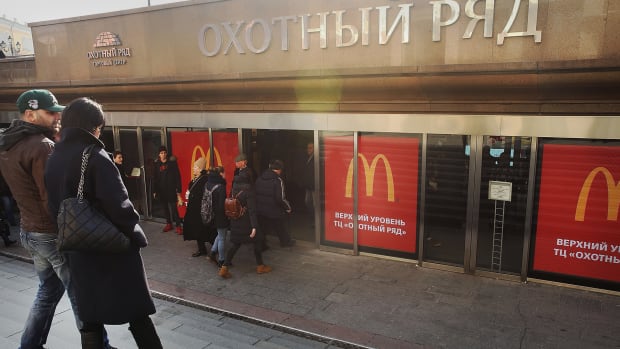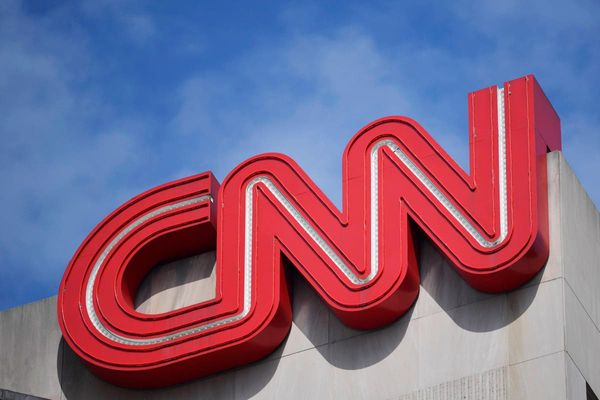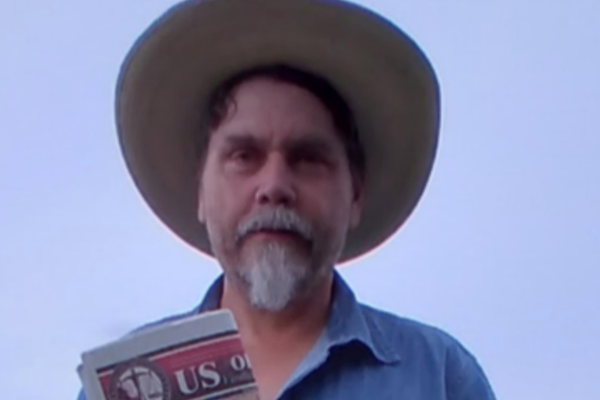It might sell Big Macs and fries in bright red cups but it definitely will not be McDonald's (MCD).
That is, at least, what is going to happen in Russia after the Golden Arches' protracted exit from the country over its unprovoked invasion of Ukraine.
The iconic American chain first came to the Soviet Union in 1990 in a sign of warming relations between the two countries during the Cold War.
Even as hundreds of companies started leaving the country en masse over its instigation of the war in Ukraine, the Golden Arches initially hesitated over whether to exit the Russian market.
It first temporarily closed all its Russian locations only two weeks after the invasion started.
As casualties grew to thousands and the assault on most Ukrainian cities continued, McDonald's remaining in the country became an increasingly damaging PR move.
What Exactly Does 'De-Arching' Mean?
By May 19, the company announced that it had struck a deal to permanently sell all of its Russian locations to local franchisor Alexander Govor.
The company, which already operates around 25 McDonald's restaurants in Siberia, will be required to rebrand so as to not be associated with the brand.
McDonald's will still, however, retain its trademark in the country.
"The Company intends to initiate the process of 'de-Arching' those restaurants, which entails no longer using the McDonald’s name, logo, branding, and menu, though the Company will continue to retain its trademarks in Russia," McDonald's said in a statement.
How, exactly, this 'de-arching' will be done remains to be determined.
Even amid the suspension, some of the local franchise owners refused to close the shops and ran the stores without the right to do so.

Spencer Platt/Getty Images
It then stands to reason that the owners of the new "not-McDonald's" restaurants may try to flout such rebranding requirements to run stores that look very similar to actual McDonald's.
When the war first came to the Eastern Ukrainian city of Donetsk in 2014, local entrepreneurs evaded Western sanctions by turning old McDonald's restaurants into "DonMaks."
Bye-Bye Or Putting On A Different Hat?
As part of the turnover, Govor will also have to employ the chain's 62,000 Russian staff at the same salary for two years.
Russia's Trade Minister Denis Manturov said the deal was part of a "long and difficult" negotiation between McDonald's and Alexander Govor.
Throughout the last three months of war, McDonald's has repeatedly said that leaving Russia was a last resort that it had tried to avoid.
But while both civilian and military deaths in Ukraine continue to mount, the Russian government is showing no sign of stopping what it started.
"[Our Russian employees'] dedication and loyalty to McDonald’s make today's announcement extremely difficult," the burger chain said.
"However, we have a commitment to our global community and must remain steadfast in our values. And our commitment to our values means that we can no longer keep the Arches shining there
The BBC also reported that, in 2021, sales in Russia and Ukraine accounted for approximately 9% of McDonald's global revenue.
Ukrainian McDonald's restaurants also remain shut due to the impossibility of running them in an active war zone.
"As a result of its exit from Russia, the Company expects to record a charge, which is primarily non-cash, of approximately $1.2-1.4 billion to write off its net investment in the market and recognize significant foreign currency translation losses previously recorded in shareholders' equity," McDonald's said.







